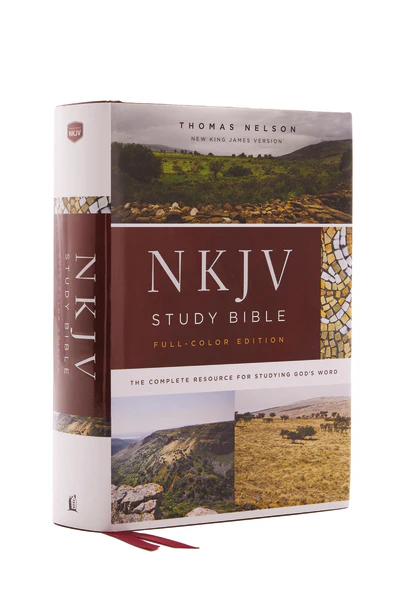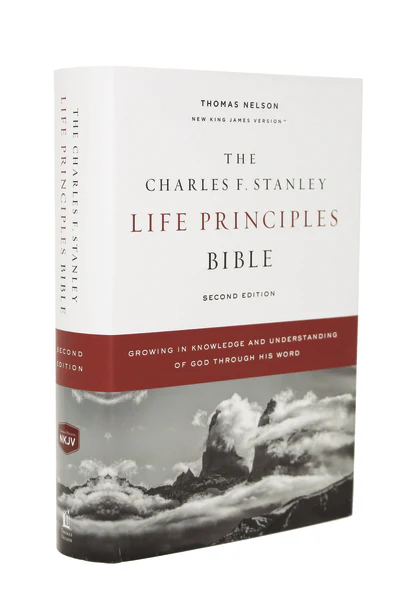Esther 9-10
New King James Version
The Jews Destroy Their Tormentors
9 Now (A)in the twelfth month, that is, the month of Adar, on the thirteenth day, (B)the time came for the king’s command and his decree to be executed. On the day that the enemies of the Jews had hoped to overpower them, the opposite occurred, in that the Jews themselves (C)overpowered those who hated them. 2 The Jews (D)gathered together in their cities throughout all the provinces of King Ahasuerus to lay hands on those who (E)sought their harm. And no one could withstand them, (F)because fear of them fell upon all people. 3 And all the officials of the provinces, the satraps, the governors, and all those doing the king’s work, helped the Jews, because the fear of Mordecai fell upon them. 4 For Mordecai was great in the king’s palace, and his fame spread throughout all the provinces; for this man Mordecai (G)became increasingly prominent. 5 Thus the Jews defeated all their enemies with the stroke of the sword, with slaughter and destruction, and did what they pleased with those who hated them.
6 And in (H)Shushan[a] the [b]citadel the Jews killed and destroyed five hundred men. 7 Also Parshandatha, Dalphon, Aspatha, 8 Poratha, Adalia, Aridatha, 9 Parmashta, Arisai, Aridai, and Vajezatha— 10 (I)the ten sons of Haman the son of Hammedatha, the enemy of the Jews—they killed; (J)but they did not lay a hand on the [c]plunder.
11 On that day the number of those who were killed in [d]Shushan the [e]citadel [f]was brought to the king. 12 And the king said to Queen Esther, “The Jews have killed and destroyed five hundred men in Shushan the citadel, and the ten sons of Haman. What have they done in the rest of the king’s provinces? Now (K)what is your petition? It shall be granted to you. Or what is your further request? It shall be done.”
13 Then Esther said, “If it pleases the king, let it be granted to the Jews who are in Shushan to do again tomorrow (L)according to today’s decree, and let Haman’s ten sons (M)be hanged on the gallows.”
14 So the king commanded this to be done; the decree was issued in Shushan, and they hanged Haman’s ten sons.
15 And the Jews who were in [g]Shushan (N)gathered together again on the fourteenth day of the month of Adar and killed three hundred men at Shushan; (O)but they did not lay a hand on the plunder.
16 The remainder of the Jews in the king’s provinces (P)gathered together and protected their lives, had rest from their enemies, and killed seventy-five thousand of their enemies; (Q)but they did not lay a hand on the plunder. 17 This was on the thirteenth day of the month of Adar. And on the fourteenth of [h]the month they rested and made it a day of feasting and gladness.
The Feast of Purim
18 But the Jews who were at [i]Shushan assembled together (R)on the thirteenth day, as well as on the fourteenth; and on the fifteenth of [j]the month they rested, and made it a day of feasting and gladness. 19 Therefore the Jews of the villages who dwelt in the unwalled towns celebrated the fourteenth day of the month of Adar (S)with gladness and feasting, (T)as a holiday, and for (U)sending presents to one another.
20 And Mordecai wrote these things and sent letters to all the Jews, near and far, who were in all the provinces of King Ahasuerus, 21 to establish among them that they should celebrate yearly the fourteenth and fifteenth days of the month of Adar, 22 as the days on which the Jews had rest from their enemies, as the month which was turned from sorrow to joy for them, and from mourning to a holiday; that they should make them days of feasting and joy, of (V)sending presents to one another and gifts to the (W)poor. 23 So the Jews accepted the custom which they had begun, as Mordecai had written to them, 24 because Haman, the son of Hammedatha the Agagite, the enemy of all the Jews, (X)had plotted against the Jews to annihilate them, and had cast Pur (that is, the lot), to consume them and destroy them; 25 but (Y)when [k]Esther came before the king, he commanded by letter that [l]this wicked plot which Haman had devised against the Jews should (Z)return on his own head, and that he and his sons should be hanged on the gallows.
26 So they called these days Purim, after the name [m]Pur. Therefore, because of all the words of (AA)this letter, what they had seen concerning this matter, and what had happened to them, 27 the Jews established and imposed it upon themselves and their descendants and all who would (AB)join them, that without fail they should celebrate these two days every year, according to the written instructions and according to the prescribed time, 28 that these days should be remembered and kept throughout every generation, every family, every province, and every city, that these days of Purim should not fail to be observed among the Jews, and that the memory of them should not perish among their descendants.
29 Then Queen Esther, (AC)the daughter of Abihail, with Mordecai the Jew, wrote with full authority to confirm this (AD)second letter about Purim. 30 And Mordecai sent letters to all the Jews, to (AE)the one hundred and twenty-seven provinces of the kingdom of Ahasuerus, with words of peace and truth, 31 to confirm these days of Purim at their appointed time, as Mordecai the Jew and Queen Esther had prescribed for them, and as they had decreed for themselves and their descendants concerning matters of their (AF)fasting and lamenting. 32 So the decree of Esther confirmed these matters of Purim, and it was written in the book.
Mordecai’s Advancement
10 And King Ahasuerus imposed tribute on the land and on (AG)the islands of the sea. 2 Now all the acts of his power and his might, and the account of the greatness of Mordecai, (AH)to which the king [n]advanced him, are they not written in the book of the (AI)chronicles of the kings of Media and Persia? 3 For Mordecai the Jew was (AJ)second to King Ahasuerus, and was great among the Jews and well received by the multitude of his brethren, (AK)seeking the good of his people and speaking peace to all his [o]countrymen.
Footnotes
- Esther 9:6 Or Susa
- Esther 9:6 palace
- Esther 9:10 spoil
- Esther 9:11 Or Susa
- Esther 9:11 palace
- Esther 9:11 Lit. came
- Esther 9:15 Or Susa
- Esther 9:17 Lit. it
- Esther 9:18 Or Susa
- Esther 9:18 Lit. it
- Esther 9:25 Lit. she or it
- Esther 9:25 Lit. his
- Esther 9:26 Lit. Lot
- Esther 10:2 Lit. made him great
- Esther 10:3 Lit. seed. LXX, Vg. add a dream of Mordecai here; Vg. adds six more chapters
Luke 19
New King James Version
Jesus Comes to Zacchaeus’ House
19 Then Jesus entered and passed through (A)Jericho. 2 Now behold, there was a man named Zacchaeus who was a chief tax collector, and he was rich. 3 And he sought to (B)see who Jesus was, but could not because of the crowd, for he was of short stature. 4 So he ran ahead and climbed up into a sycamore tree to see Him, for He was going to pass that way. 5 And when Jesus came to the place, He looked up [a]and saw him, and said to him, “Zacchaeus, [b]make haste and come down, for today I must stay at your house.” 6 So he [c]made haste and came down, and received Him joyfully. 7 But when they saw it, they all [d]complained, saying, (C)“He has gone to be a guest with a man who is a sinner.”
8 Then Zacchaeus stood and said to the Lord, “Look, Lord, I give half of my goods to the (D)poor; and if I have taken anything from anyone by (E)false accusation, (F)I restore fourfold.”
9 And Jesus said to him, “Today salvation has come to this house, because (G)he also is (H)a son of Abraham; 10 (I)for the Son of Man has come to seek and to save that which was lost.”
The Parable of the Minas(J)
11 Now as they heard these things, He spoke another parable, because He was near Jerusalem and because (K)they thought the kingdom of God would appear immediately. 12 (L)Therefore He said: “A certain nobleman went into a far country to receive for himself a kingdom and to return. 13 So he called ten of his servants, delivered to them ten [e]minas, and said to them, ‘Do business till I come.’ 14 (M)But his citizens hated him, and sent a delegation after him, saying, ‘We will not have this man to reign over us.’
15 “And so it was that when he returned, having received the kingdom, he then commanded these servants, to whom he had given the money, to be called to him, that he might know how much every man had gained by trading. 16 Then came the first, saying, ‘Master, your mina has earned ten minas.’ 17 And he said to him, (N)‘Well done, good servant; because you were (O)faithful in a very little, have authority over ten cities.’ 18 And the second came, saying, ‘Master, your mina has earned five minas.’ 19 Likewise he said to him, ‘You also be over five cities.’
20 “Then another came, saying, ‘Master, here is your mina, which I have kept put away in a handkerchief. 21 (P)For I feared you, because you are [f]an austere man. You collect what you did not deposit, and reap what you did not sow.’ 22 And he said to him, (Q)‘Out of your own mouth I will judge you, you wicked servant. (R)You knew that I was an austere man, collecting what I did not deposit and reaping what I did not sow. 23 Why then did you not put my money in the bank, that at my coming I might have collected it with interest?’
24 “And he said to those who stood by, ‘Take the mina from him, and give it to him who has ten minas.’ 25 (But they said to him, ‘Master, he has ten minas.’) 26 ‘For I say to you, (S)that to everyone who has will be given; and from him who does not have, even what he has will be taken away from him. 27 But bring here those enemies of mine, who did not want me to reign over them, and slay them before me.’ ”
The Triumphal Entry(T)
28 When He had said this, (U)He went on ahead, going up to Jerusalem. 29 (V)And it came to pass, when He drew near to [g]Bethphage and (W)Bethany, at the mountain called (X)Olivet, that He sent two of His disciples, 30 saying, “Go into the village opposite you, where as you enter you will find a colt tied, on which no one has ever sat. Loose it and bring it here. 31 And if anyone asks you, ‘Why are you loosing it?’ thus you shall say to him, ‘Because the Lord has need of it.’ ”
32 So those who were sent went their way and found it just (Y)as He had said to them. 33 But as they were loosing the colt, the owners of it said to them, “Why are you loosing the colt?”
34 And they said, “The Lord has need of him.” 35 Then they brought him to Jesus. (Z)And they threw their own clothes on the colt, and they set Jesus on him. 36 And as He went, many spread their clothes on the road.
37 Then, as He was now drawing near the descent of the Mount of Olives, the whole multitude of the disciples began to (AA)rejoice and praise God with a loud voice for all the mighty works they had seen, 38 saying:
(AB)“ ‘Blessed is the King who comes in the name of the Lord!’
(AC)Peace in heaven and glory in the highest!”
39 And some of the Pharisees called to Him from the crowd, “Teacher, rebuke Your disciples.”
40 But He answered and said to them, “I tell you that if these should keep silent, (AD)the stones would immediately cry out.”
Jesus Weeps over Jerusalem
41 Now as He drew near, He saw the city and (AE)wept over it, 42 saying, “If you had known, even you, especially in this (AF)your day, the things that (AG)make for your (AH)peace! But now they are hidden from your eyes. 43 For days will come upon you when your enemies will (AI)build an embankment around you, surround you and close you in on every side, 44 (AJ)and level you, and your children within you, to the ground; and (AK)they will not leave in you one stone upon another, (AL)because you did not know the time of your visitation.”
Jesus Cleanses the Temple(AM)
45 (AN)Then He went into the temple and began to drive out those who [h]bought and sold in it, 46 saying to them, “It is written, (AO)‘My house [i]is a house of prayer,’ but you have made it a (AP)‘den of thieves.’ ”
47 And He (AQ)was teaching daily in the temple. But (AR)the chief priests, the scribes, and the leaders of the people sought to destroy Him, 48 and were unable to do anything; for all the people were very attentive to (AS)hear Him.
Footnotes
- Luke 19:5 NU omits and saw him
- Luke 19:5 hurry
- Luke 19:6 hurried
- Luke 19:7 grumbled
- Luke 19:13 Gr. mna, same as Heb. minah, each worth about three months’ salary
- Luke 19:21 a severe
- Luke 19:29 M Bethsphage
- Luke 19:45 NU were selling, saying
- Luke 19:46 NU shall be
Scripture taken from the New King James Version®. Copyright © 1982 by Thomas Nelson. Used by permission. All rights reserved.
Bible Gateway Recommends






